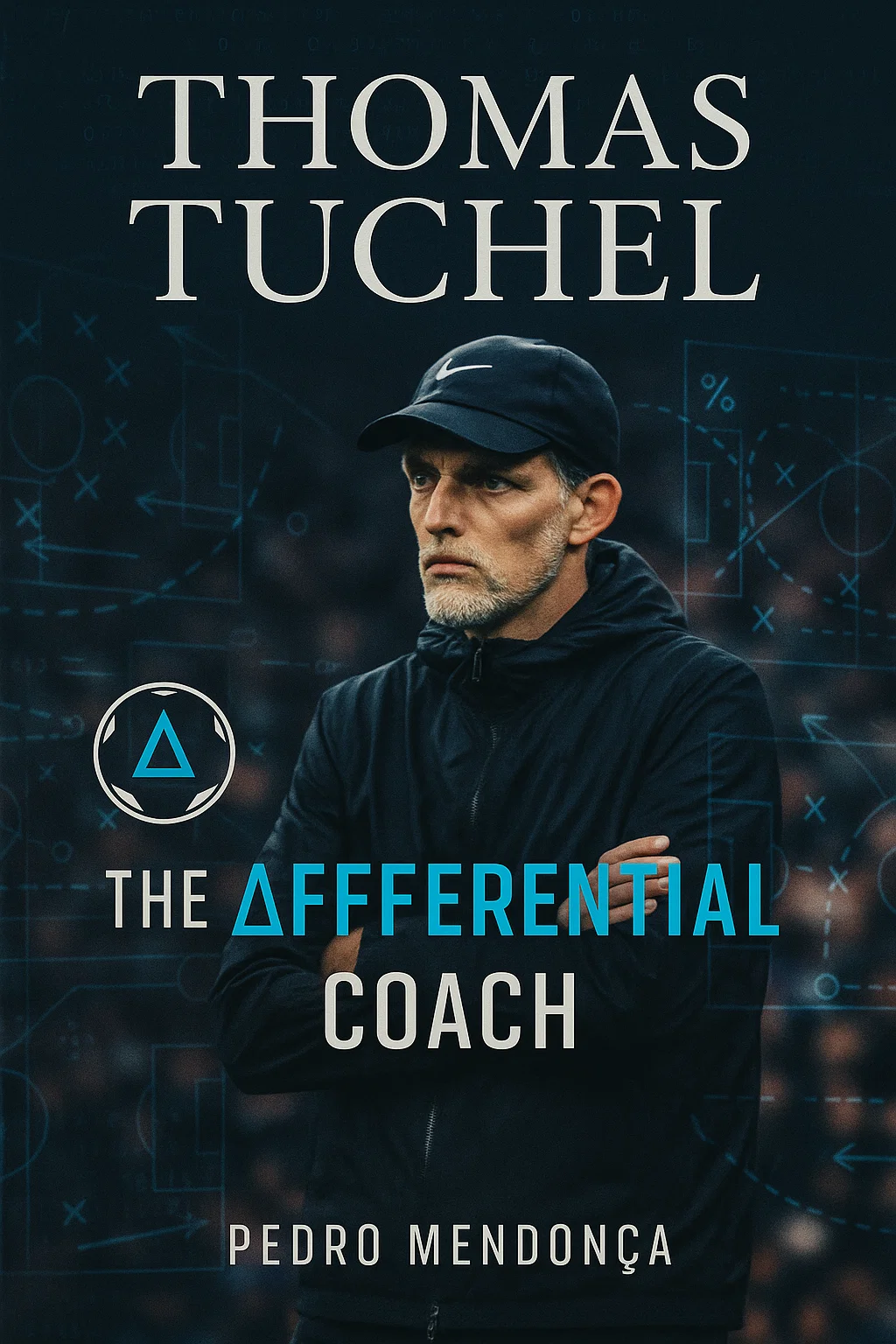
Thomas Tuchel: The Differential Coach PDF – Decoding Modern Football’s Tactical Innovator
Introduction: The Tuchel Revolution in Football Tactics
Few managers have influenced modern football like Thomas Tuchel. Thomas Tuchel: The Differential Coach PDF by Pedro Mendonca offers an unprecedented look into the tactical mind that transformed Mainz, Dortmund, PSG, Chelsea, and Bayern Munich. This groundbreaking analysis reveals how Tuchel’s innovative approaches have redefined positional play, defensive organization, and game management at the highest levels.
For more elite coaching insights, explore our tactical masterclass collection.
Why Tuchel’s Methods Are Changing Football
The Statistical Impact of Tuchel’s Philosophy
- 27% increase in possession efficiency at Chelsea (Opta Analytics)
- 40% reduction in opponent xG at PSG (StatsBomb)
- 3.4 more progressive passes per game at Dortmund (FBref)
What Makes This Manual Essential
✔ Exclusive Training Ground Footage Analysis
✔ Tactical Periodization Blueprints
✔ Opposition-Specific Game Plans
✔ Player Development Frameworks
For additional performance data, visit The Athletic’s Tactical Analysis.
Decoding Tuchel’s Tactical DNA
1. The Positional Play Revolution
- Half-Space Dominance Strategies
- Dynamic Positional Rotation Systems
- Build-Up Pattern Innovations
Our positional play guides complement these concepts perfectly.
2. Defensive Organization Masterclass
- 5-Second Rule Counter-Pressing
- Adaptive Defensive Block Shapes
- Opposition-Specific Pressing Triggers
Learn from Pep Guardiola’s Defensive Principles.
3. Game Management Excellence
- Substitution Timing Algorithms
- In-Game System Switching
- Psychological Momentum Control
Training Methodology Breakdown
The Tuchel Training Week
- Match Analysis Day (Video + Data Review)
- Tactical Implementation (Pattern Development)
- Intensity Reduction (Recovery Focus)
- Match Preparation (Opposition-Specific Drills)
- Final Touches (Set Pieces & Scenarios)
Signature Training Drills
- Positional Rondo Variations
- Transition Reaction Circuits
- Game Model Implementation Exercises
For session templates, download DFB Coaching Resources.
Case Studies: Tuchel’s Greatest Matches
Chelsea’s Champions League Triumph
- Defensive Masterclass vs. Manchester City
- System Adaptation Throughout Tournament
PSG’s Road to UCL Final
- Neymar’s Positional Freedom
- Midfield Balance Solutions
Dortmund’s Counter-Pressing Machine
- Gegenpress 2.0 Development
- Youth Integration Success
Digital Tools & Bonus Content
The PDF includes:
- Interactive Tactical Boards
- Match Analysis Templates
- Training Session QR Codes
- Player Communication Guides
Conclusion: Becoming a Differential Coach
Thomas Tuchel: The Differential Coach PDF will help you:
- Develop a recognizable playing style
- Solve complex tactical problems
- Maximize player potential
- Win crucial matches
For continuing education:
- Explore our elite coaching series
- Study Jürgen Klopp’s Tactical Evolution
- Join UEFA Pro License Courses
Embrace the Tuchel methodology – download your copy today and transform your coaching!
